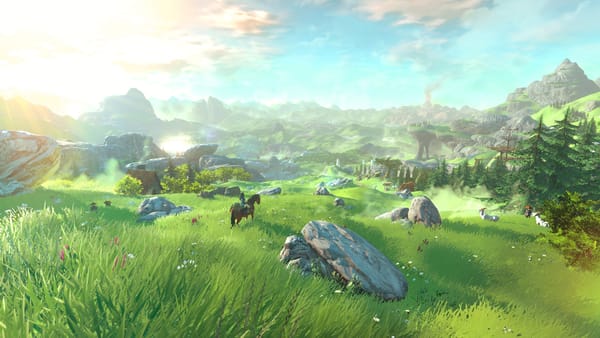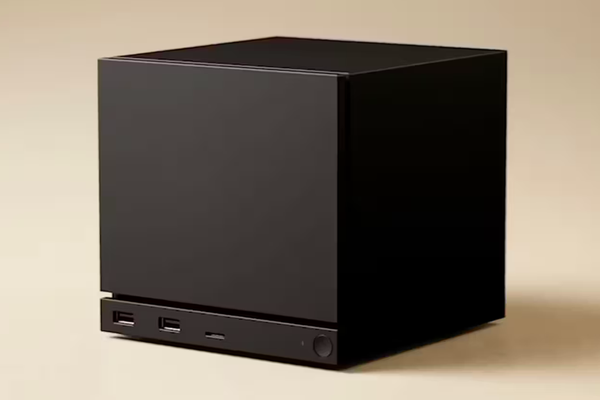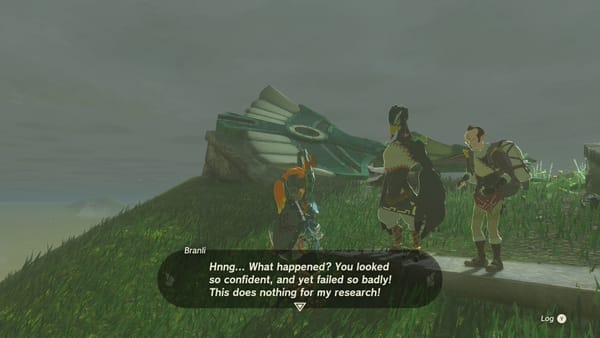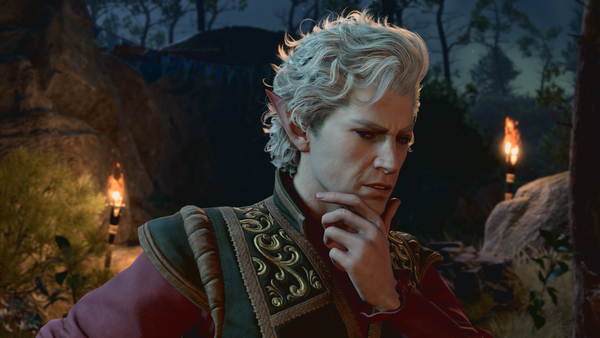#74: Death of the titans
Under attack from all angles, starved for product and with their relevance diminishing by the day, is the writing on the wall for the industry's biggest publishers?
It’s been a weird couple of years, both in the game industry and beyond. As such I’m wary of drawing any dramatic conclusions from it all; perhaps things will suddenly snap back to the way they used to be, and leave forecasters looking like mugs. And yet, as the clock runs down on Space Year 2021, I find myself preoccupied with a question. Is the era of the juggernaut publisher at an end?
The big three — Activision, Ubisoft and EA — are collectively creatively moribund, mired in scandal, and crucially, are no longer reliable hitmakers. Their influence and impact on the shape of the game industry has, I would venture, never been smaller. I am not saying the writing is on the wall, exactly. But the spray paint and stencils are at least on order.
Sure, perhaps on the surface things look fine. Call Of Duty: Warzone has been a huge success, Assassin’s Creed Valhalla is the most profitable series entry to date, and EA is still coining it from, among others, FIFA 22. These big money-making machines are still making money, and lofty financial forecasts still being hit. Surely that means everything’s fine?
It does not. Sales of this year’s mainline Call Of Duty are down 40% from last year. EA’s newly launched Battlefield 2042 is riddled with bugs, shorn of features and is one of the worst-reviewed games on Steam. Valhalla aside this has been a dismal year for Ubisoft, with only the swiftly forgotten Far Cry 6 and Riders Republic, a game I forgot existed until I looked it up just now, for the publisher to shout about.
As a general rule, in the game industry and beyond, big companies have been harder hit by the pandemic. That is really a question of numbers; there are more people, departments, offices and processes to manage, more hurdles to overcome, more problems to solve. More points of failure. Big ships turn slow at the best of times, and the last two years have, obviously, not been the best of times. So sure, perhaps you can forgive the major labels’ spartan release schedules. Maybe, if we are feeling especially kind, we can understand that games might not be as fully formed or stable at launch as we would like, or have come to expect. But there is more going on here, I think, than can reasonably be explained away by the impact of the pandemic.
For a start, there is no innovation on show whatsoever. At a local festival some years ago, I saw a live show by fading glam-rock botherers Steve Harley And Cockney Rebel. They spent 15 minutes playing songs I’d never heard before and then did a version of their biggest hit, Make Me Smile (Come Up And See Me), that I swear went on for 25 minutes, and you can only blame so much of that on the mushrooms. That is EA, Ubisoft and Activision Blizzard in 2021: ageing rockstars, long past their best, riding the train for as long as they can. Just keep rattling out the crowd-pleasers, and do your best not to notice that the crowds keep getting smaller.
You could say, I suppose, that things have always been this way. That the great commercial successes, in this medium or any other, are rarely the most innovative. Sure. Fair! But it’s not so long ago that Activision Blizzard was leading the way with Destiny, Overwatch and World Of Warcraft. Go back a little further and EA was greenlighting stuff like Dead Space and Mirror’s Edge. Ubisoft was proving the breadth of its skillset with Rayman Legends and Rocksmith, investing heavily in VR, reaching for the stars with stuff like Beyond Good & Evil 2. There was also a time when a new Call Of Duty, Battlefield or Assassin’s Creed was keenly anticipated and much discussed. There was, for years, a sense that these publishing juggernauts were driving the shape of the industry, dictating its direction of travel; playing the hits, sure, but investing in new material as well, and reaping the rewards. No longer.
Part of their problem is that these days a breakout hit can come from anywhere, and the games that are capturing the gaming public’s attention reflect that. Indies and upstart publishers are eating the majors’ lunch. At the other end of the budgetary scale, Microsoft and Sony, after their recent acquisition sprees, are more powerful and effective publishers today than EA, Activision or Ubisoft. Microsoft doesn’t need a Battlefield or Far Cry to sell Game Pass subscriptions. Sony may not have got its chequebook out quite so much, but still has managed to fill PS5’s first year with more quality games from firstparty studios than the big three have contributed to it.
And of course all this is before we get to the fact that Ubisoft and Activision are under the microscope for their miserable cultures, that they have lost swathes of senior creatives as a result, and their CEOs are seemingly more focused on fighting investigators and safeguarding their jobs than anything else. Both companies are going to have one hell of a hiring problem if they don’t fix things quickly — and only a fool would assume they will. EA may not be mired in any sexual-harassment lawsuits, but governments around the world are debating the regulation of lootboxes, which if it came to pass would deal a hammer blow to the publisher’s entire business model.
The publishing titans are under attack from all angles. From smaller, nimbler, immeasurably more creative indie teams and publishers. From the pandemic, which has uprooted their business and production models, leaving them starved of product to sell. From platform holders, who with each new acquisition condemn them further towards irrelevance. From cabinet offices, courtrooms and news desks, unearthing, investigating and ruling against their darkest secrets. And, perhaps most crucially of all, from players who are, by and large, sick of their bullshit, with good reason.
Pick one: EA, Activision, Ubisoft, it doesn’t matter. What do they stand for? What do they give to game fans and the game industry that they do not already have, or cannot already get, likely better and cheaper, elsewhere? And if the answers to those questions are negative, how much longer can they really survive? If they all disappeared tomorrow, it’s not even a question of how much they would be missed. It’s whether anyone would even notice.
MORE!
- Speaking of which, Bobby Kotick has reportedly told Activision Blizzard’s board he’d be prepared to quit were he to prove unable to quickly fix the company’s culture problems. I feel like the only sane answer to that is ‘so you’re quitting?’ but it sounds like he’s sticking around, obviously.
- Meanwhile, the advocacy group Girls Who Code is ending its three-year association with Activison Blizzard because of, well, y’know.
- I didn’t include Take Two in today’s main story, firstly because I don’t quite consider it to be on the same level as the others, secondly because I like Private Division and think it’s a model the other big guns should be following. But the publisher has certainly had its own problems of late. Currently the main one is the sorry state that GTA Trilogy: Definitive Edition launched in: the first patch introduces 50 fixes, but by all accounts many more are still required.
- Star Citizen has now raised over $400 million in its nine years of crowdfunding, during which time it has failed to progress past alpha stage. That game is definitely 100% coming out one day.
- A judge has dismissed the antitrust lawsuit brought by Wolfire Games against Valve.
- Kojima Productions has set up shop in Los Angeles. The new studio will spearhead the company’s expansion into music, TV and film.
- I was devastated to hear last week that Jonathan Fargher, legendary UK PR for PlayStation, Activision and Ubisoft, has died aged 46. Jonathan was a fantastic PR and a dear friend, who was the catalyst for some of the work I’m most proud of. I shall miss him terribly. My thoughts are with Jo, Baxter and his family.
There you go. I hope you all had a grand week in my absence. I spent it beavering away on consulting reports, taking the dog on long woodland stomps, and actually sleeping. It was nice, but it’s also lovely to be back. As ever, if you’ve enjoyed this, please sign up if you aren’t already; share it with a friend, colleague or social-media following; and perhaps consider a paying subscription, if you’re not already on the List Of Special Excellent People. Christmas is coming, after all, and the children have reached the stage of pointing at every single TV ad and going, ‘can we ask Santa for that?’. I need all the help I can get. Have a great couple of days, and I’ll see you on Wednesday.





